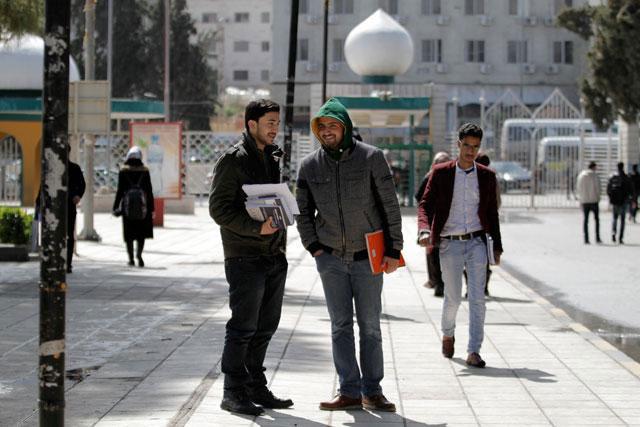You are here
Council of Ministers approve regulations implementing grace period for student loans
By Ana V. Ibáñez Prieto - Sep 21,2018 - Last updated at Sep 21,2018
AMMAN — The Council of Ministers on Wednesday approved the new student support fund regulations for official universities, which come in accordance with the provisions of the recently endorsed higher education law for the granting of scholarships and student loans.
The new system’s most relevant feature is the introduction of a two year grace period after graduation, which will grant students time to pay back their loans, Higher Education Minister Adel Tweisi told The Jordan Times, noting that “according to the prior regulations, students had to initiate the repayment of loans shortly after their graduation”.
“Furthermore, graduate students can pay back their loans in small instalments over a period of five years, setting the total payback period to seven years,” the minister pointed out.
In addition, a new committee will be formed in order to study the situation of vulnerable students who do not meet all the requirements of eligibility for a scholarship but are still considered needy, according to Tweisi.
“The new system takes into consideration the stretched economic situation of the Kingdom and its people when setting the regulations for the repayment of student loans,” the minister said, pointing out that however, the fund is currently suffering from a deficit of JD16 million.
In June this year, when the deficit was standing at a total of JD18 million, Higher Education Ministry Secretary General Ahed Wahadneh told The Jordan Times that “this deficit is virtual in the sense that the money is there, but it is still in the hands of the students who are due to pay their loans back”, noting that the fund has supported students with a total of JD260 million in scholarships and loans since its establishment in the academic year of 2004-2005.
Accordingly, the official suggested a reduction in the amount of the first repayment instalment aimed at alleviating the burdens on students and their families, and calling for the development of a system that “preserves the public funds of the state while considering the economic situation of the students borrowing from the fund”.
But even after the endorsement of the new student support fund regulations, recent graduates are still finding themselves at odds when paying back their student loans.
Ammar Al Naddaf, a graduate from the Hashemite University, told The Jordan Times that “even if the new system is applied shortly, the economic burden that the country is facing will make it difficult to repay student loans”, lamenting that “with the minimum wage fixed at JD220 and recent graduates stuck without employment, not even small instalments distributed over a period of five years will fix the situation”.
“With the current economic climate, it becomes easier for a student to rely on bank loans to be paid back in the long term, than to resource to the student support fund,” he added.
However, the new system has also given “peace of mind” to parents like Nada Sharif, who says she feels more confident to send her children to the university now that students can be granted a grace period to repay their loans.
“My children are eligible for student loans, but the perspective of having to pay the grant back shortly after graduation made me refrain from enrolling them at the university, as I was afraid they would not find employment right after finishing their studies,” she told The Jordan Times, regarding the new student support fund system as “more realistic with the current economic situation of the Kingdom”.
Related Articles
AMMAN — The Higher Education Ministry’s student support fund is currently suffering from a deficit of JD18 million, the ministry's secretary
AMMAN — A new committee has been formed by the Ministry of Higher Education to review the regulations governing the student support fund and
AMMAN — The Directorate of Scholarships at the Higher Education Ministry on Sunday will announce the list of students covered by the support

















